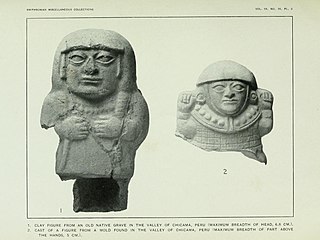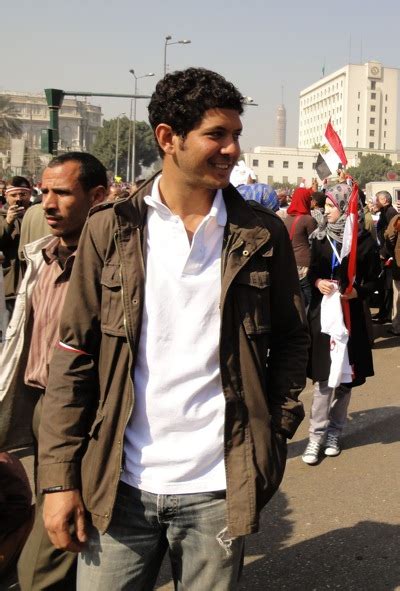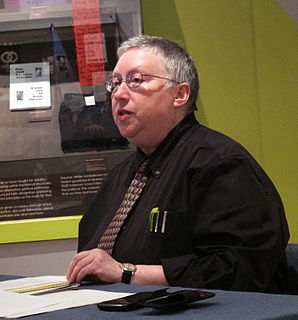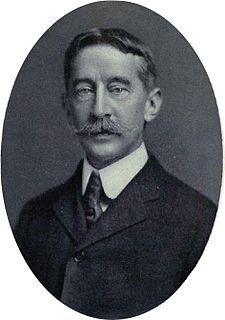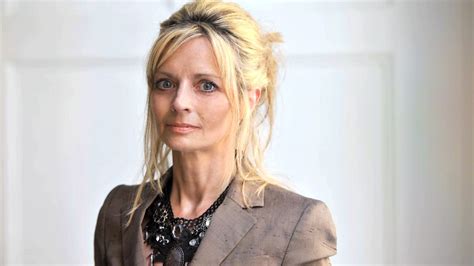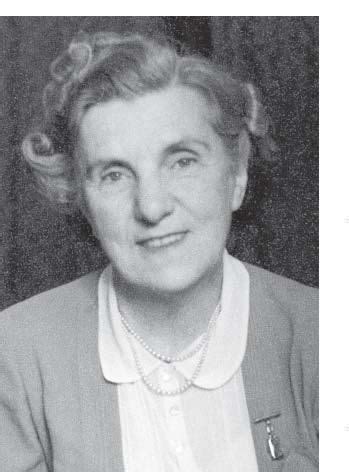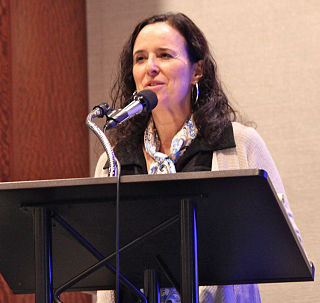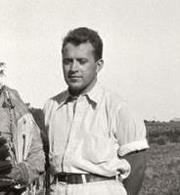A Quote by Anthony F. C. Wallace
You can't really discover the most interesting conflicts and problems in a subject until you've tried to write about them. At that point, one discovers discontinuities in the data, perhaps, or in one's own thinking; then the act of writing forces you to work harder to resolve these contradictions.
Related Quotes
I write about people I think are interesting, and then I discuss it with my editor, and she decides if she thinks it will be interesting to children as well. If I have no great interest in the subject, I find the work to be terribly boring. And if I find the person interesting, I love the research part and, by extension, the writing as well.
I write for myself, and perhaps for half a dozen friends. And that should be enough. And that might improve the quality of my writing. But if I were writing for thousands of people, then I would write what might please them. And as I know nothing about them, and maybe I'd have a rather low opinion of them, I don't think that would do any good to my work.
It is harder for women, perhaps to be 'one-pointed,' much harder for them to clear space around whatever it is they want to do beyond household chores and family life. Their lives are fragmented... the cry not so much for a 'a room of one's own' as time of one's own. Conflict become acute, whatever it may be about, when there is no margin left on any day in which to try at least to resolve it.
I didn't learn how to read and write until pretty late, and it was this very mysterious, incredible thing, like driving, that I didn't get to do. And then I started writing things down on little scraps of paper and I would hide them. I would write the year on them and then I would stuff them in a drawer somewhere. But I didn't start to really read until about eight. I'm dyslexic, so it took a long time.
I've been writing for a long time, since the late '60s. But it hasn't been in the same form. I used to write scripts for television. I wrote for my comedy act. Then I wrote screenplays, and then I started writing New Yorker essays, and then I started writing plays. I didn't start writing prose, really, until the New Yorker essays, but they were comic. I didn't start writing prose, really, until the '90s. In my head, there was a link between everything. One thing led to another.
As more women have gone into the workforce, they find it harder to be a good mother and a good worker. When I go into the office, I always feel guilty. I'm thinking about the children. When I'm at home, I'm thinking about my work. So you're always under tremendous pressure. Women feel very stressed. They feel like they're working harder and harder and harder. And society is not really helping them.
When I make a film, I never stop uncovering mysteries, making discoveries. When I'm writing, filming, editing, even doing promotional work, I discover new things about the film, about myself, and about others. That is what I'm subconsciously looking for when shooting a film: to glimpse the enigmas of life, even if I don't resolve them, but at least to uncover them. Cinema is curiosity in the most intense meaning of the word.
Teaching and writing, really, they support and nourish each other, and they foster good thinking. Because when you show up in the classroom, you may have on the mantle of authority, but in fact, you're just a writer helping other writers think through their problems. Your experience with the problems you've tried to solve comes into play in how you try to teach them to solve their problems.
Further, in writing, I feel corrupt and unethical if I have to look up a subject in a library as part of the writing itself. This acts as a filter--it is the only filter. If the subject is not interesting enough for me to look it up independently, for my own curiosity or purposes, and I have not done so before, then I should not be writing about it at all, period. It does not mean that libraries (physical and virtual) are not acceptable; it means that they should not be the source of any idea.
I don't write about sex because it's not really my subject. I love it when other people write about it, but it's not my subject, and I don't want anyone I've had sex with to write about it. Plus, you're in front of an audience, and they picture wherever you're writing about. I'm 52; no one in the audience wants to picture that.
I hated the culture, I hated the work. I very quickly realized that this wasn't what I wanted to do. So, after two years, I took some writing courses - I always loved to write - and I figured the only way I was going to get paid to write was in journalism. I really wasn't very involved politically with anything up until that point. Then I started reading about the second Palestinian Intifada, and I spoke to friends in activist and journalism circles. Then, somehow by complete luck, I ended up at Democracy Now.
I have found, in short, from reading my own writing, that my subject in fiction is the action of grace in territory largely held by the devil. I have also found that what I write is read by an audience which puts little stock either in grace or the devil. You discover your audience at the same time and in the same way that you discover your subject, but it is an added blow.
